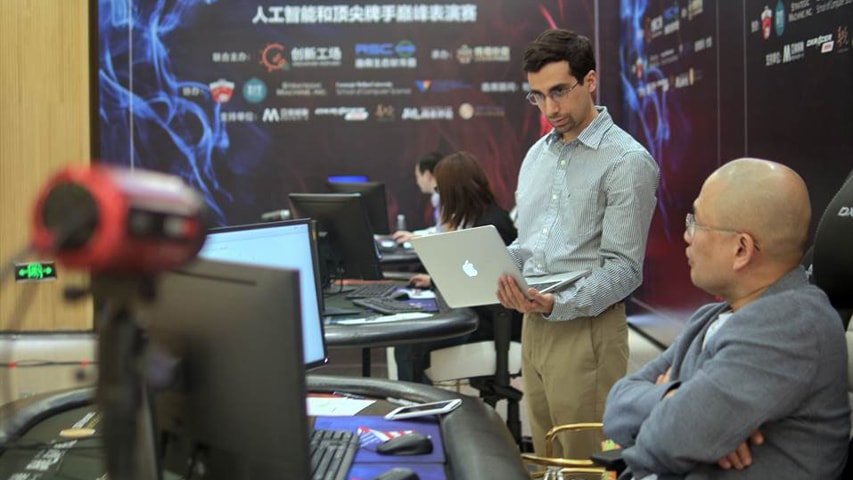Carnegie Mellon Artificial Intelligence Beats Chinese Poker Players
Tops Humans by $792,327 in Virtual Chips During Five-Day Exhibition
By Byron Spice
Artificial intelligence once again triumphed over human poker players as a program developed by Carnegie Mellon University researchers beat six Chinese players by $792,327 in virtual chips during a five-day, 36,000-hand exhibition in Hainan, China.
The AI program, called Lengpudashi or “cold poker master,” is a version of Libratus, the CMU AI that beat four top poker professionals during a 20-day, 120,000-hand Heads-Up No-Limit Texas Hold’em competition in January in Pittsburgh.
Strategic Machine Inc., a company founded by Tuomas Sandholm, professor of computer science and co-creator of Libratus/Lengpudashi with Noam Brown, a Ph.D. student in computer science, will take home a pot worth approximately $290,000.
The human players, called Team Dragons, were led by Alan Du, a Shanghai venture capitalist who won a 2016 World Series of Poker bracelet.
Though Libratus and Lengpudashi played different numbers of hands in their separate competitions, Lengpudashi’s final margin of victory was bigger — by 220 milli-big-blinds per game vs. 147 milli-big-blinds per game for Libratus. A milli-big blind is one-thousandth of the bet required to win a game and milli-big-blinds per game is a standard metric for comparing poker efficiency.
The exhibition was organized by Kai-Fu Lee, a CMU alumnus and former faculty member who is CEO of Sinovation Ventures, an early-stage venture capital firm that invests in startups in China and the United States. He is a former executive of Apple, Microsoft and Google and is one of the most prominent figures in China’s internet sector. Sinovation and Hainan Resort Software Community hosted the exhibition.
Strategic Machine has exclusively licensed Libratus and other technologies from Sandholm’s CMU laboratory. Strategic Machine targets a broad set of applications: poker and other recreational games, business strategy, negotiation, cybersecurity, physical security, military applications, strategic pricing, finance, auctions, political campaigns and medical treatment planning.